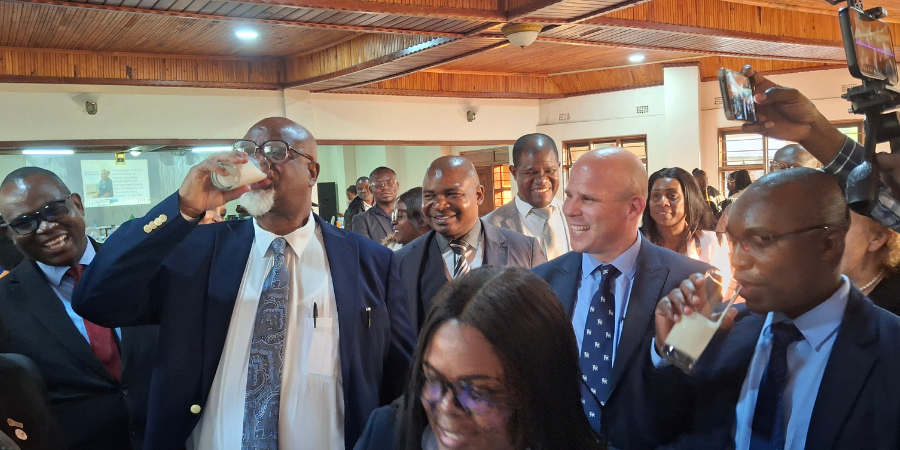Research News Last updated 15 July 2025

Birmingham City University (BCU) continues to strengthen its partnership with nursing and healthcare professionals in Zambia through the annual Critical Care Nurses Conference.
Organised by the Critical Care Nurses Association of Zambia (CCNAZ), the conference, now in its third year, was officially opened by Zambia’s Minister of Health, the Honourable Dr Elijah Muchima.
BCU recently launched its first crowdfunding campaign to support an innovative research project in Zambia, introducing C-CLUB - an affordable, nutritious feed designed specifically for patients in critical care.
During the conference, Minister Muchima personally sampled the C-CLUB feed and praised its quality and potential impact.
“Having worked in partnership with the Zambian Ministry of Health for over a decade now, we are delighted to see how critical care and emergency and trauma nursing have evolved,” said Associate Professor Chris Carter, a BCU Critical Care researcher.
“We were delighted to be able to showcase some of our close-to-practice research and quality improvement projects.
“This included C-CLUB, our low-cost, highly sustainable enteral nutrition project to the Minister of Health, Permanent Secretary and Director of Nursing Services during the conference.”
The conference, themed Critical Care without Walls: from Emergency Department to Rehabilitation, provided a platform to discuss holistic care across the patient journey.
Since 2015, BCU has been actively engaged in Zambia, registering 400 nurses and training 1,600 healthcare workers throughout the Covid-19 pandemic.
BCU’s keynote presentation, delivered by Professor Joy Notter and Associate Professor Chris Carter, was titled Rehabilitation in Critical Care: The Importance of Giving Patients a Voice.
“Patients are the centre of all care, and recovery and rehabilitation are different for everyone, so it’s vital that we listen to them if we are to give them the best possible care,” said Joy Notter, Professor of Community Nursing at BCU.
“With more understanding of the effects of critical illness, there is little evidence and information on the long journey of recovery for patients in Zambia; therefore, our research aims to address this.”